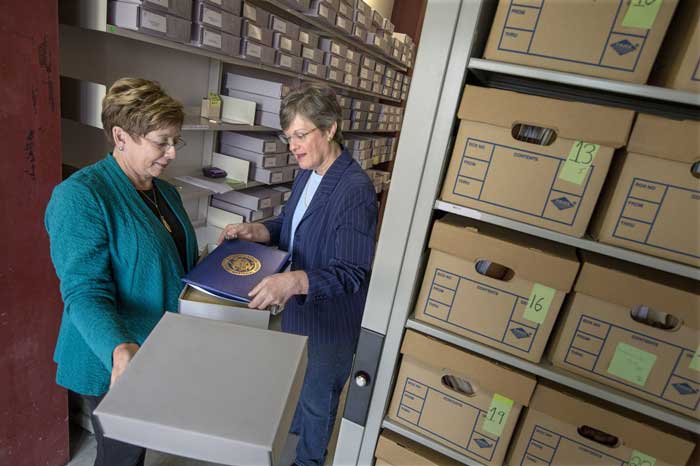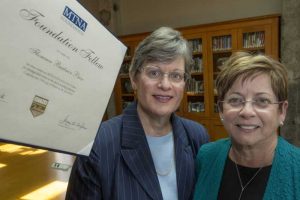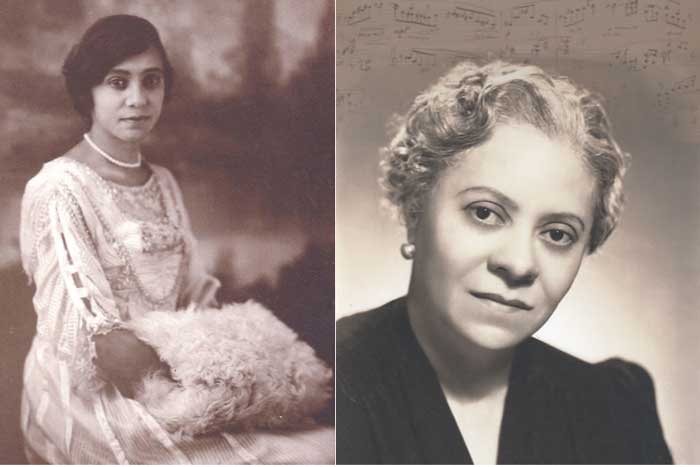Arkansas Composer Florence Price honored by organization who denied her entry due to race
A famous Arkansas composer, teacher, and pianist has been honored by the Arkansas State Music Teachers Association for her lifetime of musical accomplishments after being denied entry to the organization nearly a century ago because of her race.
Florence Price is a Little Rock native who became the first African-American woman composer to have a symphonic composition performed by a major American orchestra, and one of the first African-American classical composers to gain international attention.
The Arkansas State Music Teachers Association was founded in 1917. Although the exact year is not known, Price applied and was denied entry to the organization sometime between 1917 and 1927.
Linda Holzer, professor of music at the University of Arkansas at Little Rock, was instrumental in making sure Price was recognized after all these years.
“I heard Florence Price’s music on a recording that had been released in the early 1990s by the African-American concert pianist Althea Waites. I was very impressed by the beauty and dramatic power of the music, and this is what led me to study her piano works for my doctoral dissertation,” Holzer said.
When members of the association discussed ways they could celebrate its 100th anniversary, Holzer suggested honoring Price with the Music Teachers National Association Foundation Fellow Award.
“Most of the current members of ASMTA were unaware of the history,” Holzer said. “Board members were supportive of the idea and were understandably dismayed to learn how Price had been treated in the early 20th century. So 2017 was the year to put the proposal forward formally, and the board voted in June 2017 in favor of my nomination of Florence Price for an MTNA Foundation Fellow.”
Holzer attended the Music Teachers National Association conference in Orlando March 17-20 to accept the award on Price’s behalf. Price passed away in Chicago in 1953. The last line in Price’s biography in the association’s program reads, “Denied membership in ASMTA during her lifetime, we proudly honor her now.”
“The decision of the Arkansas State Music Teachers Association to honor Florence Beatrice Price as an MTNA Foundation Fellow is one of the most generous and thoughtful acts I have ever encountered,” said Gary Ingle, executive director and CEO of Music Teachers National Association. “I am thrilled that the ASMTA wants to redress the injustice committed during a different time in our nation’s and ASMTA’s history.”
Holzer donated the conference program and Price’s certificate and pin to the UA Little Rock Center for Arkansas History and Culture so that it can be preserved for future generations.

“It’s exciting for the Center for Arkansas History and Culture to play a role in providing overdue recognition for such an important classical composer from Arkansas,” Center Director Deborah Baldwin said.
Holzer will also be honoring Price in two additional ways. KUAR 89.1 will air an hour-long radio special on Price in early May featuring updates on her legacy, including interviews with the archivists who discovered her lost and unknown works as well as musicians who are now working to bring that music to life. The program also features a 1994 documentary, “From Spiritual to Symphony,” that contains rare interviews with Price’s music students and family friends.
“Musicologist Earnest Lamb, formerly a cellist in the Arkansas Symphony, had thoughtfully researched the documentary in the early 1990s and produced it with the late Ben Fry for KUAR/KLRE,” she said. “It almost got forgotten about, but I asked staff at the radio station to look for it. The lone cassette copy of the broadcast was uncovered a little over a year ago, and the Center for Arkansas History and Culture digitized it.”
In May, Holzer will travel to Austria and Slovenia to perform as a classical pianist in “Masterpieces by American Women Composers.” The program will prominently feature music composed by Price and will be the first time Price’s music has been performed at these locations. Holzer is happy that these efforts are providing opportunities for today’s audiences to rediscover Price’s talents.

“Florence Price was a determined, tremendously talented musician,” Holzer said. “She did not let the discrimination slow her down. She went on to achieve so much as a composer and pianist and organist and teacher. I think about the movie ‘Hidden Figures’ that came out last year about accomplished but hidden women in math and science working behind the scenes at NASA. Similarly, I feel like Florence Price’s contributions were minimized during her lifetime.”
The life and legacy of Florence Price
Price was born in 1887 in Little Rock. Her early musical talents were nurtured by her mother, Florence Smith, who was a piano teacher. Price gave her first piano performance at the age of four.
Price graduated as the valedictorian of Capitol Hill School in Little Rock in 1903. She attended the prestigious New England Conservatory of Music in Boston and received degrees as an organist and as a piano teacher in 1907. She returned to Arkansas and taught music in Cotton Plant and at Shorter College in North Little Rock.
In 1910, Price moved to Atlanta to head the music department at Clark University. She married lawyer Thomas Price and returned to Little Rock in 1912. In 1927, Price and her family moved to Chicago to escape the racial tensions in Arkansas.
In Chicago, she won first prize in the Wanamaker Foundation Music Competition for her first symphony, “Symphony No. 1 in E Minor,” which was given its world premiere by the Chicago Symphony Orchestra in 1933 as part of a series of concerts during the World’s Fair.
Over the course of her career, Price published more than 300 compositions. Price’s music was largely forgotten after her death in 1953, but the rediscovery of the music, life, and legacy of Price has resurged over the past decade.
In 2009, a couple renovating an abandoned home in St. Anne, Illinois, discovered a substantial collection of Price’s works and papers, including many unpublished songs and piano solo pieces that were thought to be lost. As a recent article in The New Yorker explained, more of Price’s once-lost works are being published and performed, her popularity and legacy are on the rise.
“Florence Price had a calling,” Holzer said. “Her calling was to be a great musician. No matter what kinds of obstacles came up in her life, whether it was discrimination for her race or gender or challenges like the Great Depression, she never stopped nurturing her talents and never stopped finding ways to develop her creative voice. She could be a role model for us all in 2018.“
The upper right photos of Florence Price are courtesy of University of Arkansas Libraries Special Collections.
